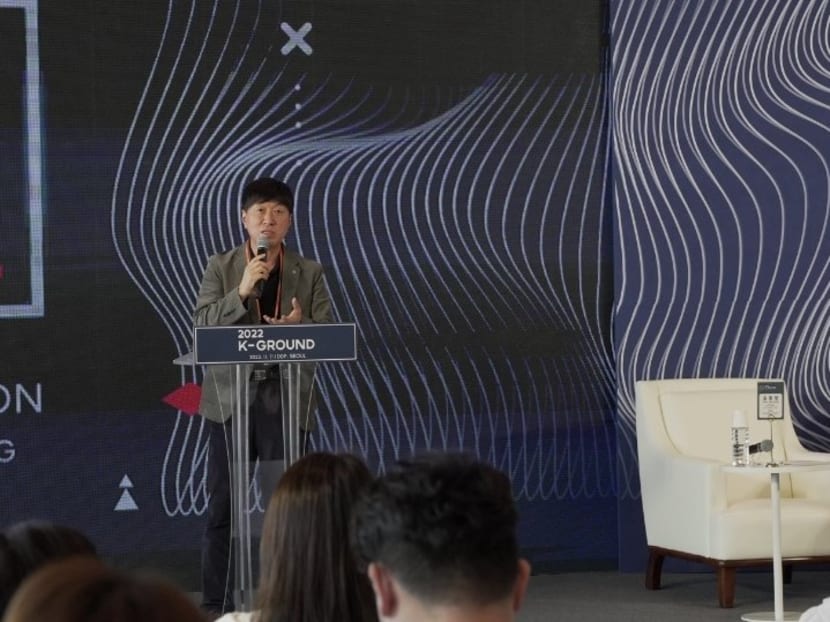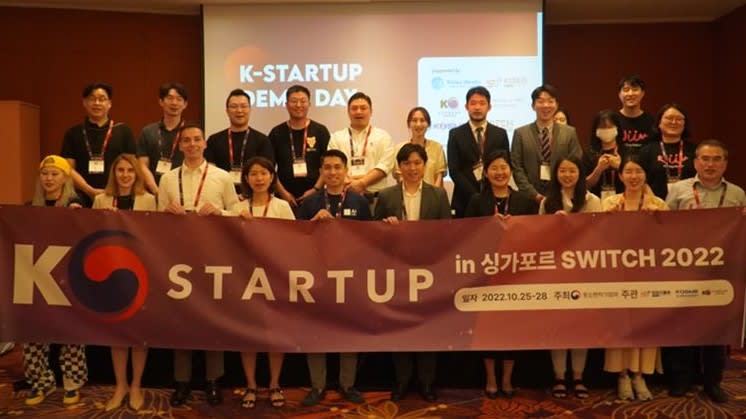Building a flourishing start-up ecosystem in South Korea, and beyond
From ideation to commercialisation, the Korea Institute of Startup and Entrepreneurship Development is providing systemised support to nurture start-ups at varying stages of maturity.

President of the Korea Institute of Startup and Entrepreneurship Development (KISED) Kim Yong-moon speaks at the K-Ground Networking Event held at Dongdaemun Design Plaza in Seoul. Photos: KISED
From ideation to commercialisation, the Korea Institute of Startup and Entrepreneurship Development is providing systemised support to nurture start-ups at varying stages of maturity.
In Asia Pacific, start-ups are blazing new digital trails, and have been touted as “the world’s growth engine”, says a study by KPMG and HSBC. Among the titans of Asia’s start-up ecosystem is South Korea, which took top spot in Bloomberg’s Innovation Index for 2021 and is poised to create “a second venture boom”.
To further the country’s ambitions locally and globally, the Korea Institute of Startup and Entrepreneurship Development (KISED) was established in 2009, and works with local start-ups to build a more robust ecosystem.
“Start-ups now form the backbone of the South Korean economy, representing the linchpin of employment and growth,” said president of KISED Kim Yong-moon. Small and medium enterprises (SMEs), as well as venture companies, sit at the centre of the South Korean economy, he said, adding that “the government is committed to realising a complete venture network, spanning pre-stage start-ups to global unicorns”.
THE COGS BEHIND A THRIVING START-UP ECOSYSTEM
Established by the South Korean Ministry of SMEs and Startups, KISED boasts a holistic suite of services to help South Korean start-ups cement their place in a competitive global landscape. These include start-up education programmes, commercialisation initiatives, mentorship and consulting, as well as access to facilities, spaces, events and networking opportunities.
A keen proponent of systemised support, KISED has a range of packages to nurture start-ups at varying stages of maturity.
At the pre-start-up stage, the focus is trained on advancing entrepreneurship, with the objective of helping founders take concepts from ideation to execution. Companies at this development phase can avail themselves to KISED’s pre-start-up package, with access to funds for commercialisation, mentorship from industry stalwarts, and education in areas such as corporate management.
Moving on, the early-stage package looks after the needs of start-ups with less than three years of experience. Companies can tap on funds to cover commercialisation costs around activities such as prototype production, intellectual property rights acquisition and marketing efforts. Additionally, go-to-market strategies are ironed out through a combination of market research and consumer feedback.
Start-ups with three to seven years of experience are considered to be at the growth stage of their journey. Here, the goal is to ensure the long-term sustainability of the business. To build resilience and help start-ups break through ‘death valley’ – the period where a start-up has begun operations but is not yet revenue-generating – tailored growth promotion programmes are put in place to facilitate distribution, increase sales and explore initial public offering opportunities.
GLOBAL AMBITIONS

As of 2021, KISED has nurtured more than 40,000 tech-based start-ups, while generating over 140,000 jobs and listing 38 start-ups on the second trading board of Korea Exchange KOSDAQ.
“KISED aims to accelerate the globalisation of local start-ups. For instance, the Global Market Expansion Programme provides a head-start by supporting market research efforts. We are also working with more than 60 partners worldwide to expand the global footprint of South Korean start-ups,” shared Mr Kim.
This is done through the K-Startup Center (KSC), which helps budding South Korean start-ups that wish to enter international markets find their bearings in new ecosystems. Its international partners include the Silicon Valley-headquartered Plug and Play and Singapore’s NUS Enterprise. With support from the latter, KSC Singapore was established in July 2020 and serves as a launchpad for Korean SMEs and start-ups in fields such as financial technology, artificial intelligence as well as energy and environment.
Beyond taking care of local start-ups, KISED also extends support to non-Korean entrepreneurs via the Overseas Assistance for Startup Immigration System, helping this segment secure the necessary visas and launch their businesses in South Korea.
Learn more about KISED and its support packages.








